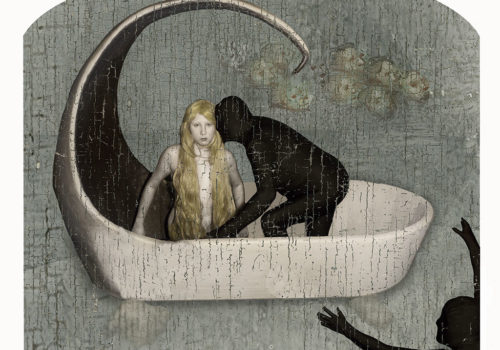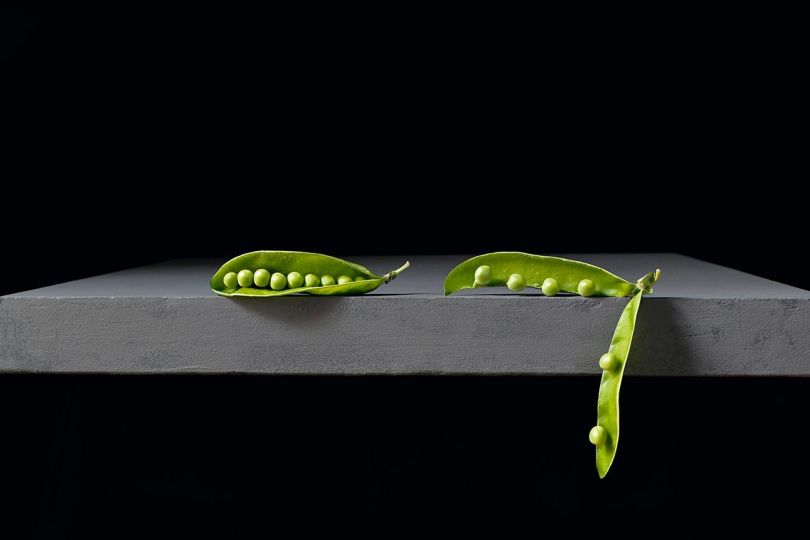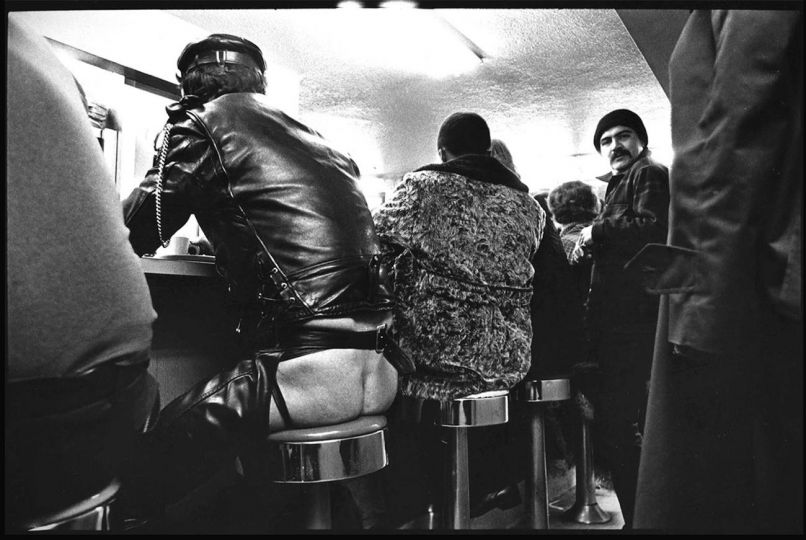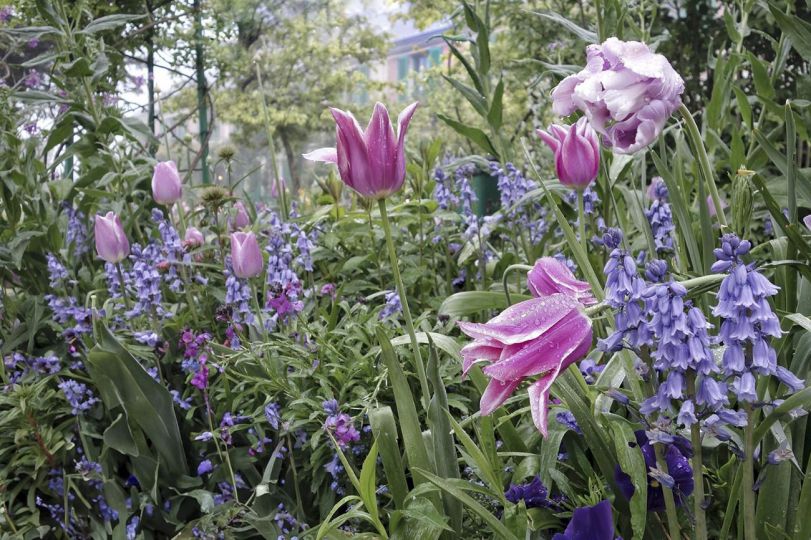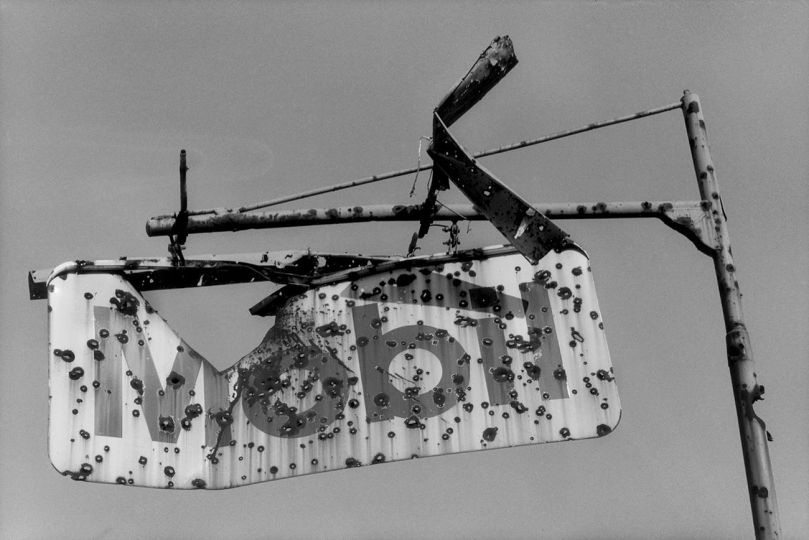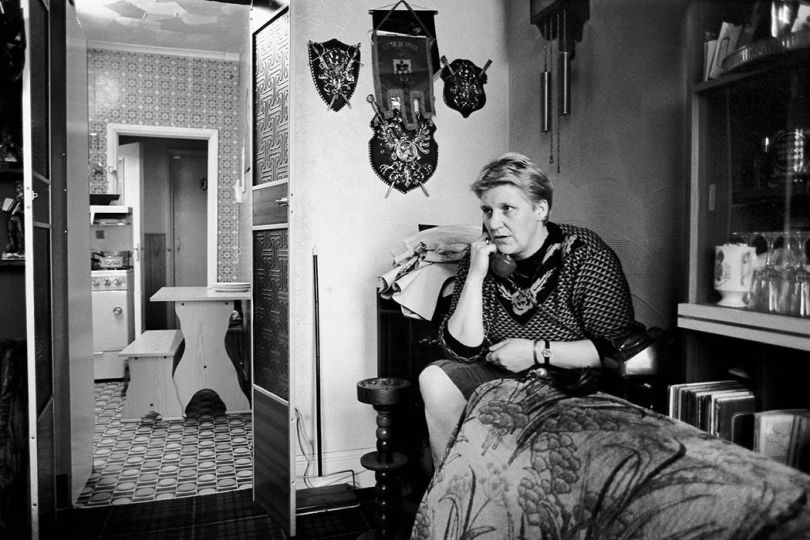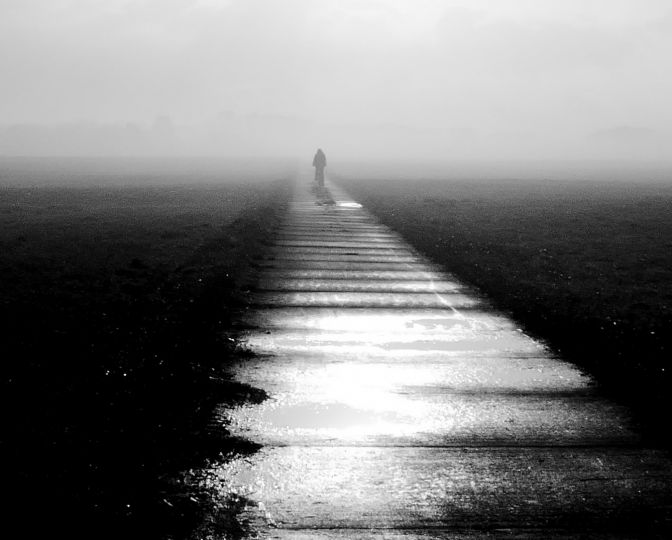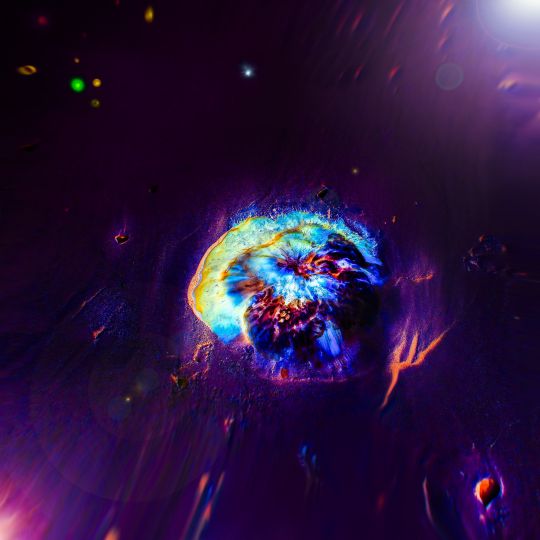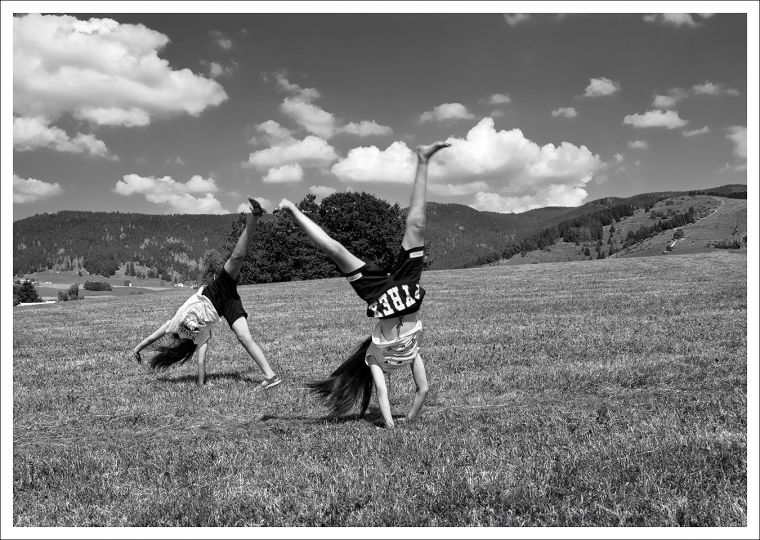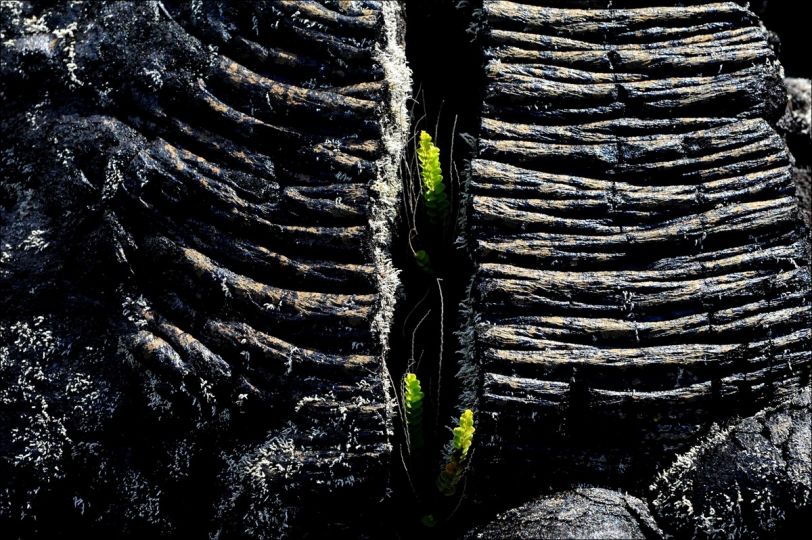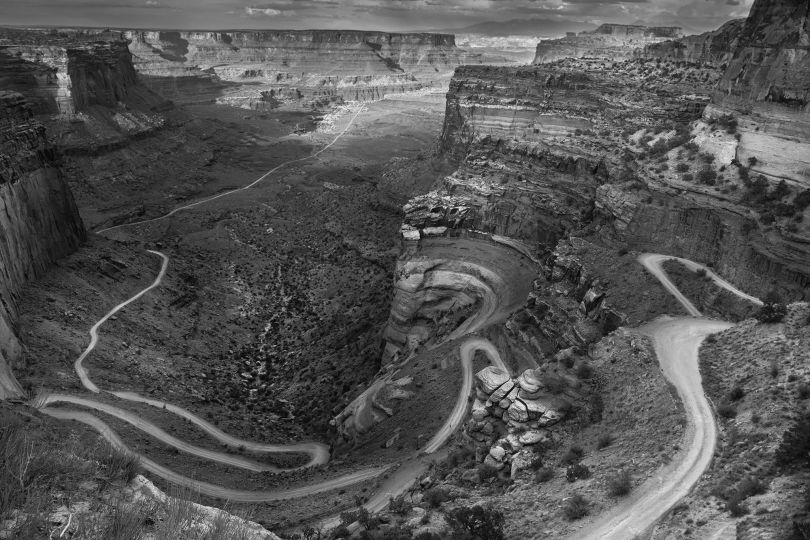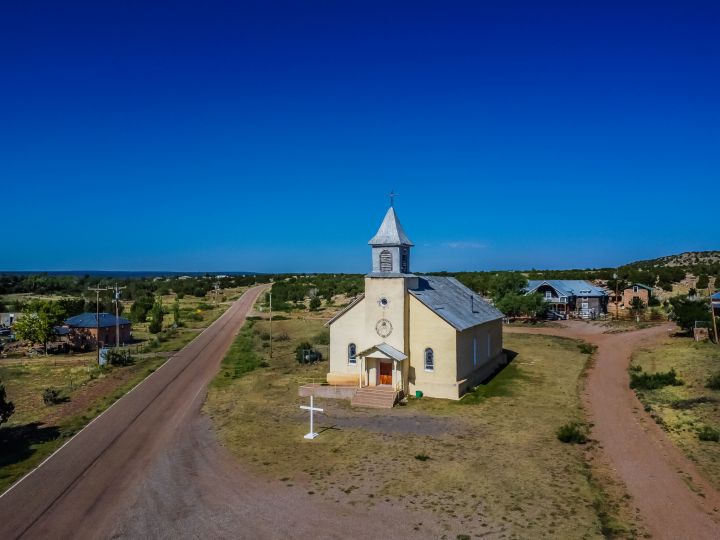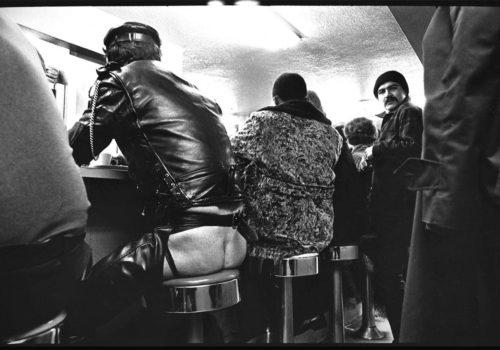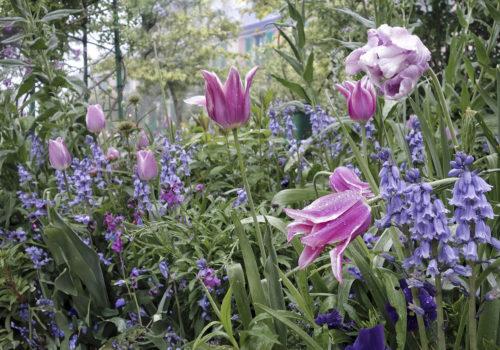Lori Pond’s photography mirrors 12th century Buddhist Dogen Zenji’s quote: “Nothing in the Entire Universe is Hidden.” She uses a myriad of processes and cameras (film, digital, wet plate collodion, iPhone) to uncover both physical and emotional landscapes.
Pond challenges the viewer to see beyond instinctual fear and question what is “real” in her body of work “Menace.” Taxidermied animals are digitally “captured,” and darkened with a variety of post production processes so they look about to pounce. One is not sure if these animals are real or not. In a larger context, the work asks if society’s modern fears are justified.
Pond became fascinated with Hieronymus Bosch’s “Garden of Earthly Delights” as a teenager. His limitless imagination and intricately detailed images captured her mind. In her project, Bosch Redux, she hones in on small tableaus that occupy the background of his work. She makes, buys and collects wardrobe, props, prostheses and uses makeup that matches as closely as possible to the original detail from a Bosch painting, then she hires models to recreate the detail as closely as possible, all in camera. Certain elements from the original artworks are incorporated into the backgrounds of the photographs.
Pond’s portraiture work depends either on self-portraiture, or on encounters with mostly strangers. For example, the photographs forming the series “Passengers” were made while traveling through the Southwest by train. Her series “1980s LA” features film portraits of mental patients mostly suffering from organic brain syndrome due to alcoholism. And, her tintype series “Strange Paradise” features images of people who don’t belong to any time period. The imperative behind the images is to relay a connectivity between the viewer and the subject that may not happen in daily life. Pond describes her landscape work as “The Intimate Universe.” In all of Pond’s work, especially the landscape work, she is creating a photographic memento mori. Her photographs are a means of considering the vanity of earthly life and a practice of reflection on mortality. – Alyssa Coppelman
Lori Pond

